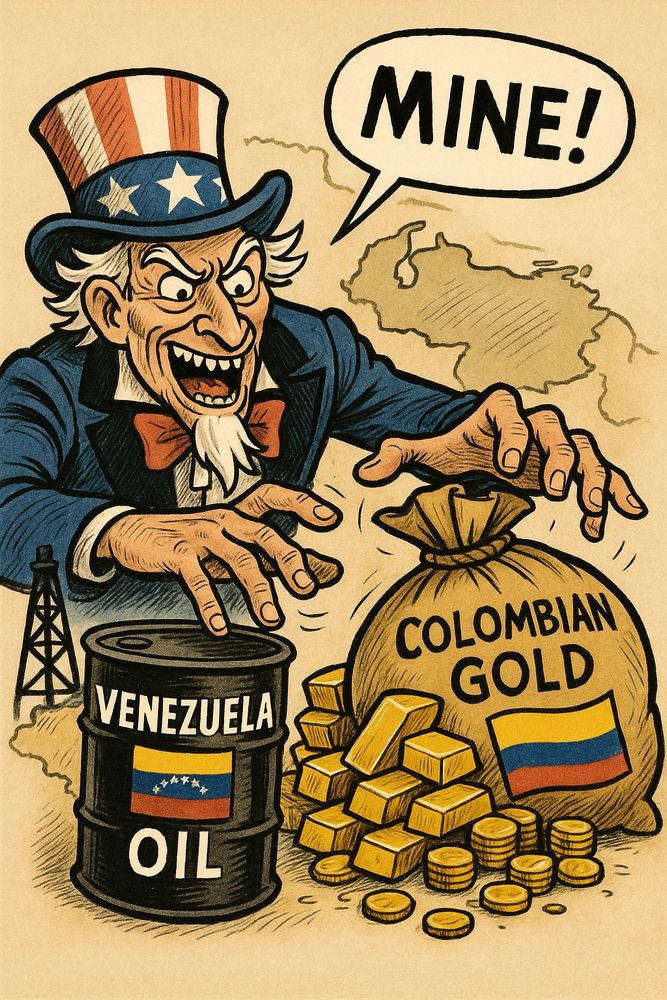WASHINGTON – The U.S. Treasury Department’s Office of Foreign Assets Control (OFAC) announced sanctions against Colombian President Gustavo Petro on Friday, October 24, 2025, marking a dramatic escalation in bilateral relations. The measures, officially tied to ‘anti-narcotics designations,’ also target Petro’s son Nicolás, First Lady Verónica Alcocer, and Minister Armando Benedetti, linking them to alleged facilitation of drug trafficking.
This action places President Petro and his inner circle on a specialized U.S. designation list, though it differs from the traditional ‘Clinton List’ targeting direct drug cartel links. According to reports from La Silla Vacía, the designations fall under a framework established in 2021, which does not necessitate demonstrating a direct nexus to a specific drug trafficker. The sanctions are also reported by WION to include a ban on President Petro traveling to the U.S.
President Petro swiftly rejected the sanctions, declaring he holds neither assets nor bank accounts in the United States and vowing that Colombia ‘won’t kennel’ under external pressure. He characterized the move as ‘mafia-like’ threats, reinforcing his defiant posture. Petro has also publicly asserted that the cocaine trade is dominated not by small-scale operators but by ‘global multinationals that do not live in bombed boats,’ calling for a reframing of the global drug war. His strong rhetoric extended to a broader philosophical statement: ‘There is no superior race… There is no ‘chosen people of God,’ neither the United States nor Israel. The ‘chosen people of God’ is all of humanity.’
The sanctions come as President Petro has increasingly positioned Colombia on the international stage, notably proposing the creation of a ‘Salvation Army’ composed of nations opposing what he termed ‘genocide in Gaza.’ Moreover, Petro’s administration has publicly exposed a Pegasus spyware program within Colombia, alleging involvement of the CIA and Israel, a disclosure that some suggest may have contributed to the recent U.S. punitive actions, highlighting conflicts between national information disclosure and international pressures.
The U.S. government’s decision intensifies a fraught relationship that has been notably contentious with figures like former President Donald Trump. While the official rationale cites a failure to combat drug trafficking, the backdrop includes Petro’s accusations that Trump sought to perpetrate ‘imperialism and colonialism’ supported by far-right Colombian expatriates in Florida. Secretary of State Marco Rubio, however, emphasized that the sanctions are ‘not directed against the Colombian people or economy,’ ruling out additional tariffs against the nation. The New Yorker previously noted that if alleged cartel leaders had remained in U.S. custody, as the first to be captured under Trump’s ‘armed conflict’ against international cartels, it ‘would have brought legal scrutiny to Trump’s whole gambit, either by a military tribunal or a civilian court.’
Domestically, the sanctions have intertwined with ongoing political narratives. President Petro’s confession of a long-standing separation from First Lady Verónica Alcocer, while stating their ‘legal bond’ remains unbroken, notably surfaced amidst the ‘Lista Clinton’ scandal, as reported by EuropaSays.es. Earlier in October, Petro also publicly criticized Colombia’s National Civil Registry, calling its management of the Pacto Histórico primary an ‘absolute disaster’ and requesting extended voting hours, signaling internal political pressures converging with international scrutiny. Political analysts suggest that these verbal clashes with figures like Donald Trump could inadvertently bolster Petro’s standing among voters seeking alternatives to right-wing, pro-Trump candidates in future Colombian elections.

